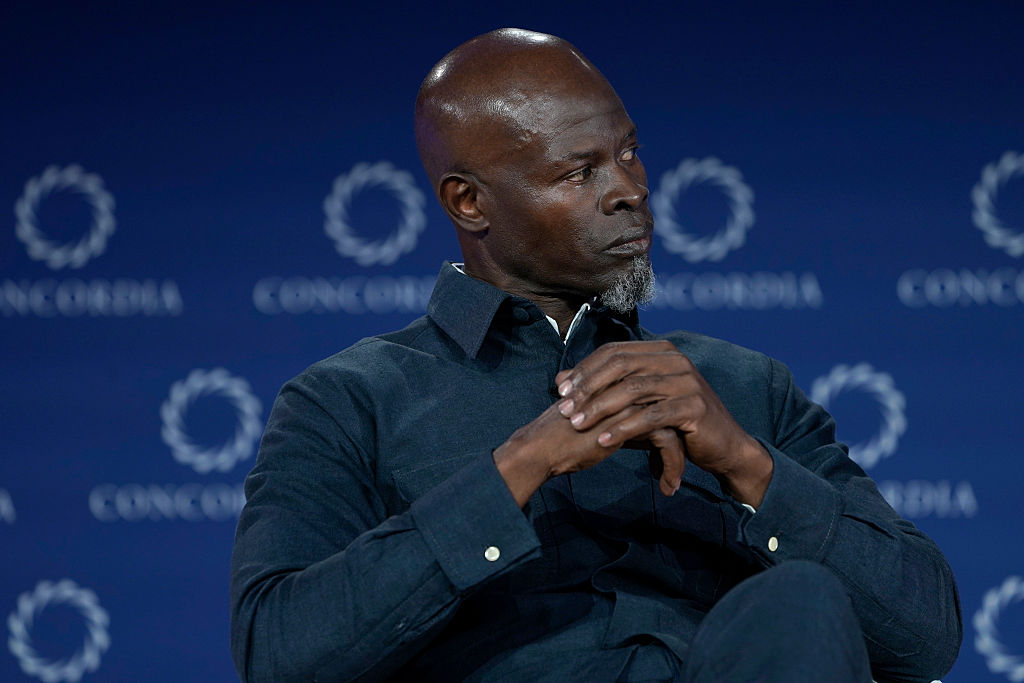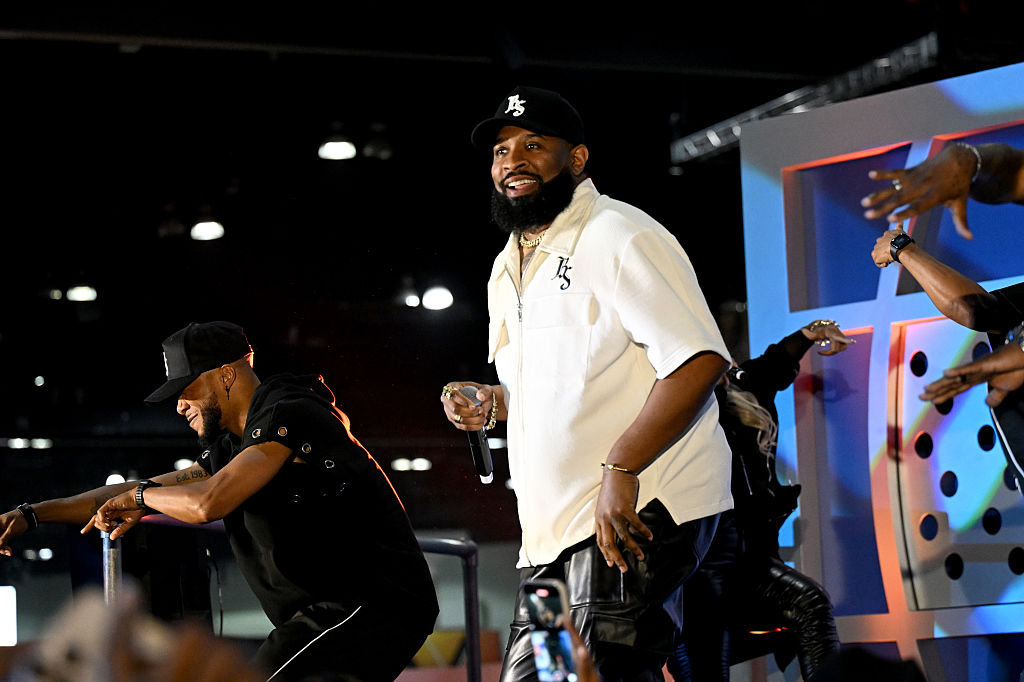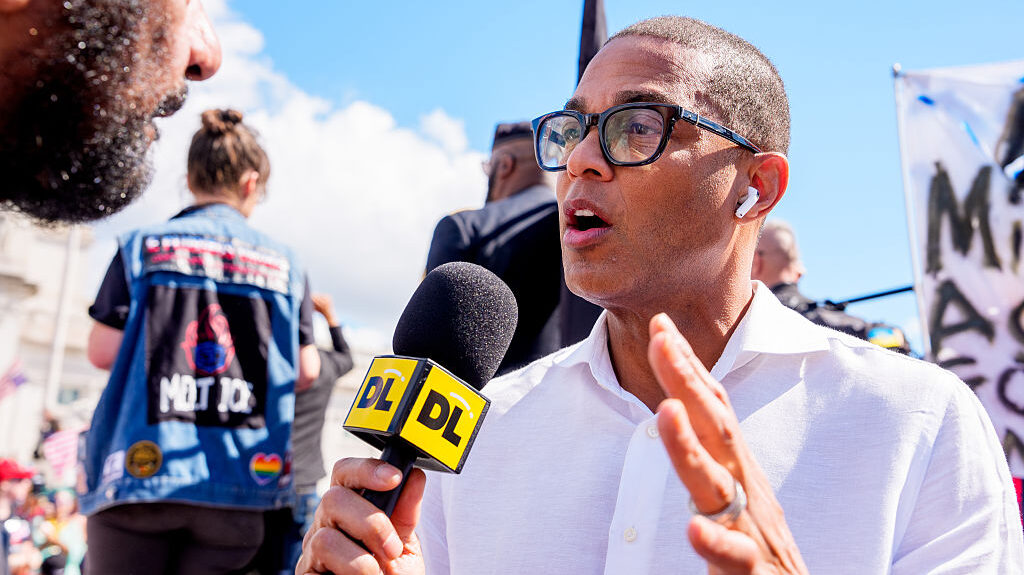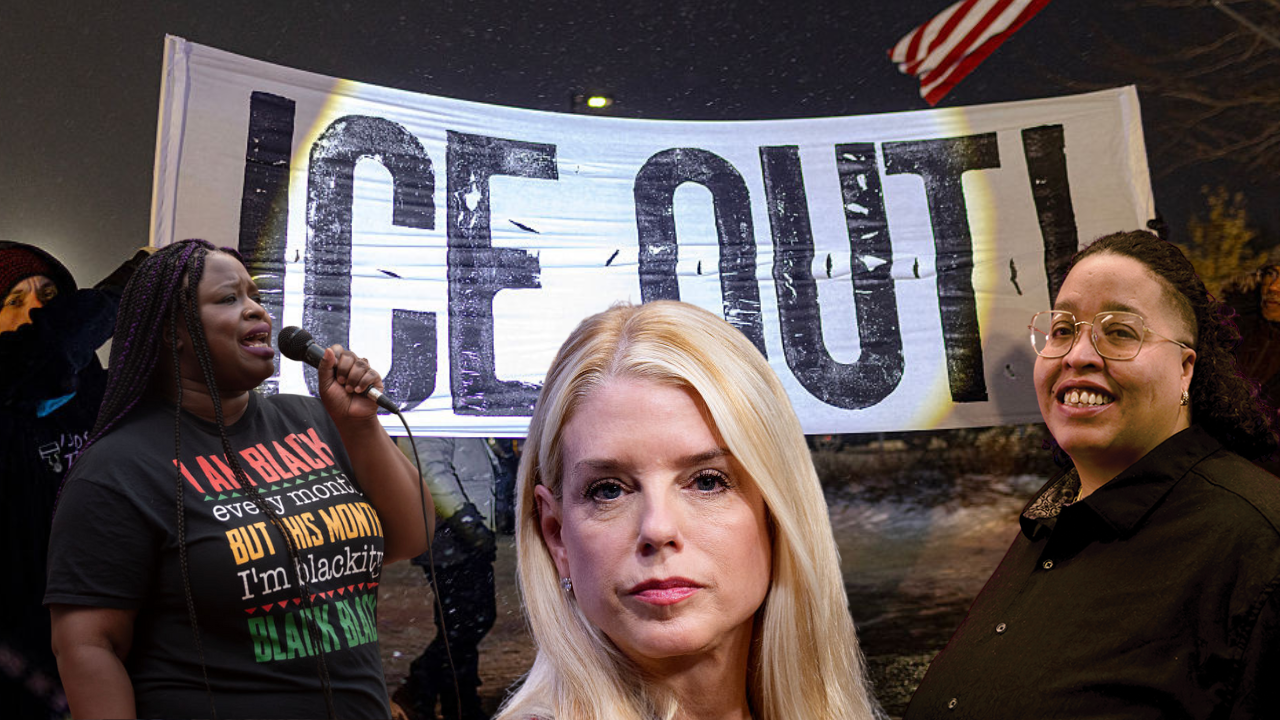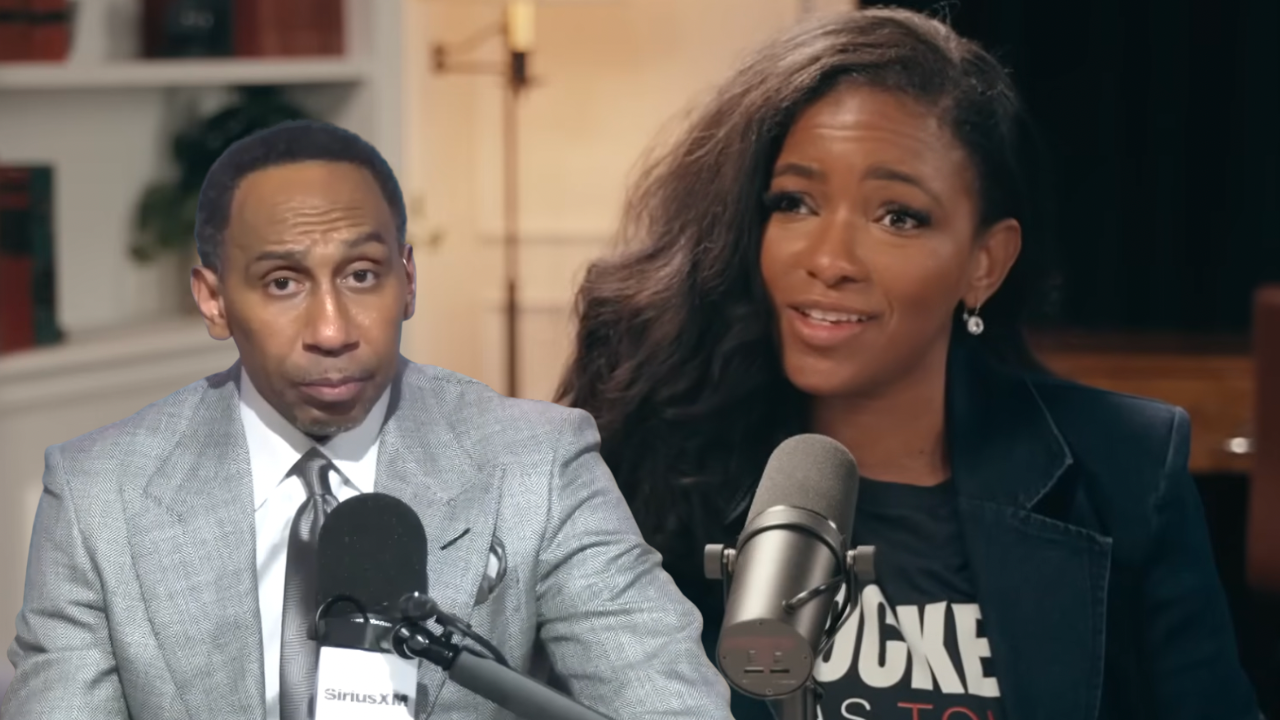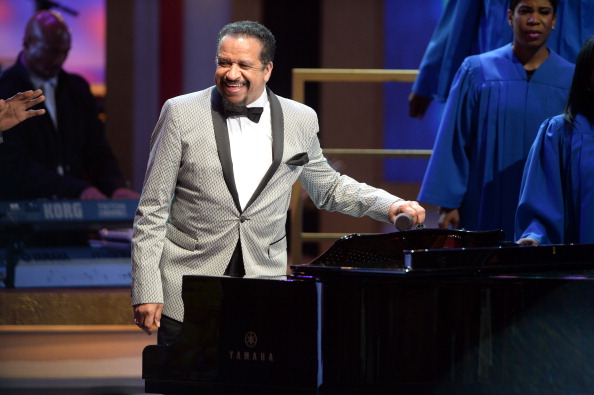The significance of 16 Black NFL starting quarterbacks cannot be overlooked


The 16 is an ongoing essay series on the record number of Black quarterbacks starting in the NFL during the 2025 season.
As the NFL enters its third week, a significant milestone of the new season has been overlooked and underappreciated, namely that 16 of 32 starting quarterbacks are African American.
Each of the 16 starters has a unique story. During the course of the season, Andscape will explore the path each athlete has taken to become part of this milestone.
“You hear those numbers — sometimes it’s overlooked — but you really have to take a second to pause and think about how far the African American quarterback has come,” said New York Jets veteran quarterback Tyrod Taylor. He entered the league in 2011 with the Baltimore Ravens. He has been a starter, a backup and now is a starter again in place of another Black quarterback, Justin Fields, who is injured.
“To see as many African American quarterbacks in the league, let alone starting quarterbacks in the league, to see that number grow over the past decade and a half is definitely something to appreciate.”
PLAYER TEAM ROUND DRAFTED/OVERALL PICK Jayden Daniels Washington Commanders 1/2 Justin Fields New York Jets 1/11 Jalen Hurts Philadelphia Eagles 2/53 Lamar Jackson Baltimore Ravens 1/32 Jordan Love Green Bay Packers 1/26 Patrick Mahomes Kansas City Chiefs 1/10 Kyler Murray Arizona Cardinals 1/1 Michael Penix Jr. Atlanta Falcons 1/8 Dak Prescott Dallas Cowboys 4/135 Spencer Rattler New Orleans Saints 5/150 Geno Smith Las Vegas Raiders 2/39 CJ Stroud Houston Texans 1/3 Cam Ward Tennessee Titans 1/1 Caleb Williams Chicago Bears 1/1 Russell Wilson New York Giants 3/75 Bryce Young Carolina Panthers 1/1
Perhaps “The 16” milestone has been underappreciated because fans and the media have become used to Black athletes as a dominant presence in the NFL and their style of play as normal. Although Black players have been a presence in the NFL since 1948, when the NFL was re-integrated, the evolution of Black quarterbacks is significant.
Since Jackie Robinson desegregated Major League Baseball in 1948, each team sport has kept track of African American “firsts.” Yet no position in any of those sports has been as significant as quarterback, the most unique position in team sports.
The position is infused with qualities like heroism, intelligence, bravery, and grace under pressure — qualities associated, due to years of literary propaganda, with the white male ethos. African American athletes routinely were steered away from quarterback. Even as the cultural climate in the United States has shifted from liberal left to conservative right, the progress of African American quarterbacks has been a steady upward climb. In the arena of sport and play, where the playing field is relatively level, success matter.
“Coaches want to win,” said pioneering quarterback James Harris during a recent interview. “They want to win and they’re playing the best players. Some of these players now are some of the greatest players that ever played the position. And they can do it all. They’re the field generals, they can paint the game, they can play the game, they can throw the ball, they can run it. They’re leaders.”
In 1969, Harris — who played collegiately at Grambling — became the first Black quarterback to start a regular-season game in the NFL or AFL. Harris was 23 at the time. He never could have imagined that nearly 60 years later, half the league’s starting quarterbacks would be African American.
“Well, in 1969, I couldn’t imagine it because we were just trying to get one in,” said Harris, who was drafted by the then-AFL’s Buffalo Bills. “When I came into the league, there were none. I couldn’t see beyond someone establishing himself in the league. It was a challenge just getting anybody into play and, considering we had so many great players that played the position, it was obvious it was not about talent. It was just getting the opportunity to play.”
The fact that, 56 years later, half the league’s starting quarterbacks are Black is a turn of events Harris could never have imagined.
What does it mean?
“Well, I hope it means that the best player gets a chance to play,” Harris said. “And I think the landscape has changed because you have so many Black quarterbacks starting in college. They were being trained earlier, they were getting that opportunity to work with quarterback trainers, and at an early age. And we had an era where so many of them are successful. I think the Black quarterback has not only arrived, but he’s here to stay, and right where we should be.
“This is all anybody ever asked for: that the best player play.”
The irony of Harris’ career is that he was groomed by legendary Grambling head coach Eddie Robinson to be the prototype dropback quarterback that conformed to the orthodoxy of the day. Harris took pains to hide his athleticism so not to be forced to change position. Over the course of his career, Harris saw countless number of great athletes — like Eldridge Dickey from Tennessee State — forced to switch position when they reached the NFL.
Today, aspiring young quarterbacks of all shapes, sizes and ethnicities — and coaches at every level — understand that the athletic, wide-open style of play is the preferred way to play the position. Players like Randall Cunningham and Michael Vick popularized an exciting style of quarterback play now popularized by the Baltimore Ravens’ Lamar Jackson, who is African American, and the Buffalo Bills’ Josh Allen, who is white. Athleticism and quarterback are no longer a contradiction in terms. They define a racially neutral necessity.
As Denver Broncos defensive coordinator Vance Joseph once told me: “If you are an uber-athletic athlete and a good quarterback, no one wants to switch you. Because if you have one of those guys as your quarterback, it makes your team dangerous. To have a guy like Lamar — for a coach — is a godsend. In this day and age, if a kid’s a Lamar body type and he’s a quarterback, he’s going to be a quarterback.”
The ability to run from the quarterback position has become as much a part of the game as the slap shot in hockey, the stolen base in baseball, the slam dunk in basketball. While the ability to complete passes remains the primary function of the position, the ability to do both well is a highly coveted talent.
“We’re doing it in different ways,” said New York Giants veteran quarterback Jameis Winston. “It’s not just being an athletic quarterback. We’re managing games. We’re winning from the pocket, and we’re using our legs. And I think that dynamic is what makes half of us being NFL starters so impeccable. We’re redefining the stereotype that was always false.”
Sporting News via Getty Images
When Troy Vincent entered the NFL in 1992 as a defensive back drafted in the first round, there were three African American starting quarterbacks: Cunningham, Warren Moon and Rodney Peete.
Today, Vincent — the NFL’s executive vice president of football operations — said the dramatic transformation in the position is because of opportunity.
“This is about access to opportunity,” Vincent said. “Talent was always there. The doors weren’t. We’re not celebrating a trend. We’re acknowledging a new era of talent converging with intentional opportunity.”
In the mid-90s, Black quarterbacks like Moon and Cunningham had to prove they could lead, process and win.
Despite a stellar college career at the University of Washington, Moon had to go to Canada to pursue his dreams of playing quarterback at the professional level. Moon played in Canada from 1978 to 1983, when he joined the NFL with the Houston Oilers.
Moon is the only African American quarterback in the Pro Football Hall of Fame. He was inducted in 2006. Cunningham played 16 NFL seasons and is regarded as the cornerstone of the style popularized today by Jackson and the Washington Commanders’ Jayden Daniels.
While Moon and Cunningham paved the way, at the time they were seen as outliers. Today, their style of play is considered the norm. Black quarterbacks are starters, league MVPs, Super Bowl champions and among the highest-paid players in NFL history.
“This generation doesn’t have to prove they belong; they know they do,” Vincent said. “Half the league’s leaders under center are Black. That should tell you everything you need to know about where the game is headed.”
Michael Vick became part of that history in 2001 when he became the first Black quarterback taken No. 1 overall in the NFL draft.
Vick’s selection heralded a permanent change and acknowledged the way the position would be played going forward. In the past, a player of Vick’s speed and athleticism would have been switched to wide receiver or defensive back. At best, he would have been turned into a novelty act like Kordell Stewart, the former University of Colorado quarterback. Stewart’s nickname with the Pittsburgh Steelers became “Slash” because he was a quarterback/receiver/running back.
In drafting Vick first overall, the Falcons served notice that athletics and quarterbacking went hand in hand. Vick became a star in the league, and his exciting style of play opened new vistas for a generation of young quarterbacks. Athleticism was in; statue-ism, out.
Vick is now the first-year head coach at Norfolk State University. He said that if you would have told him in 2001 that in 24 years half the starting quarterbacks would be Black, he would have been hard-pressed to believe it.
“I’m not surprised now. If we would have been having this conversation in 2005, I would have been,” he said during a recent interview.
“If you look at it was just me, Steve McNair, Donovan [McNabb], maybe Jeff Blake [as starters]. It was like four of us that were starters. Fast forward almost 20 years later, that’s 11 more franchises that are committed to excellence. Regardless of what you look like, it’s about winning. That’s why change is so important. That’s why progress in life is so important.”
Last year, Vick produced a documentary, “Evolution of the Black Quarterback,” that showcased how the league has evolved in terms of its perception and acceptance of the style of play introduced largely by Black quarterbacks.
“It’s not about what you look like or what denomination you are, your background, your culture, race. It’s about being able to get the job done, whether you can run or pass,” Vick said. “Quarterbacking in the NFL now is definitely not what it was perceived to be 20, 30 years ago. We tried to take a [deep] dive on it to see what the motive was, what was the intentions behind not having Black quarterbacks.”
Gregory Shamus/Getty Images
The dynamic changed over the years because of coaches such as Andy Reid, who as the head coach in Philadelphia had Vick and McNabb on the roster. Former Minnesota Vikings head coach Dennis Green had Cunningham and Daunte Culpepper. Former Tampa Bay Buccaneers coach Tony Dungy drafted Shaun King.
“They all contributed to the success,” Vick said. “Joe Gibbs playing Doug Williams and Tampa Bay drafting Doug Williams. I think Buddy Ryan had Randall Cunningham.”
Vick was mentored by quarterbacks such as McNabb and Cunningham when he entered the league. He said he is encouraged to see the generation after him doing the same.
“You talk to young guys like Jalen Hurts and Jayden Daniels, and even Lamar. Those guys, they hold camps, they pour into their communities. They push the narrative of good quarterbacking. And I think they do it without the intentions of, ‘We want more Black quarterbacks.’ We just want good quarterbacks. We just want quarterbacks to understand standards and philosophy, and you know how the game is supposed to be played.”
There is, however, a Black quarterback aesthetic — a standard that has been set by generations of Black quarterbacks — that a new generation is expected to uphold.
“If you’re a Black quarterback and you come into the league, it’s a standard you’ve got to play under,” Vick said. “There’s nothing wrong with that. It’s nothing wrong with creating the barriers like what I’ve created, and Donovan created, and Randall created before us, that [New York Giants QB] Russell Wilson and those guys are still creating.”
Vick pointed out that it’s up to each new generation of Black quarterbacks to accept the torch and perform.
“Continuing to keep that narrative and that standard intact is extremely important. So, you can’t come in and screw it up now because we worked too hard to make it what it is,” he said.
George Gojkovich and Dirck Halstead via Getty Images
The history of the Black quarterback in the NFL can’t be written without including Williams’ story.
Williams was the first Black quarterback drafted in the first round of the NFL draft, being selected 17th overall by the Tampa Bay Buccaneers in 1978. With the then-Washington Redskins in 1988, Williams became the first Black signal-caller to start in the Super Bowl and be selected as the game’s MVP. He shattered racists myths while leading Washington to a 42-10 victory over the Denver Broncos in Super Bowl XXII.
Many years ago, Williams envisioned a day when at least half of the NFL’s teams would be led by quarterbacks of color. The fact that half of the league’s starters are African American is not totally a surprise.
“Last season, when we went to 15, I said to myself, ‘I didn’t know it was going to be this quick,’ ” he said. “And this year we’re at 16 – half of the league. And you know what? There’s no stopping it now. Because of the quarterbacks that are playing in high school and college these days, it’s just going to keep going.”
Of the NFL’s 16 Black starting quarterbacks in Week 1, 11 were first-round draft picks.
“It’s not just that half the league is Black,” Williams said. “These guys are No. 1 draft picks and No. 1 overall draft picks. They’re the focus of their teams. That Jim Crow-era thinking, per se, where the coaches, the owners and the general managers had that old-boy network to keep us from playing quarterback, that mindset is gone. Now, they just want to help their teams win. If they believe a quarterback can help them, they’re going to [draft] that quarterback. It’s as simple as that.”
Not that every Black quarterback drafted will be a Jackson.
“There are going to be some mistakes made – just like there were mistakes made back in the day [with white quarterbacks],” Williams said. “There are going to be some Tim Couch guys with us, too. But there are going to be a lot more who can play. Just like we’re seeing.” (Couch, drafted first overall by the Cleveland Browns in 1999, is considered a bust because his five-year career was marked by injuries and inconsistency.)
Taylor suggested that during the offseason Black quarterbacks should convene at a conference or have a celebration to mark where they have been, where they are, and where they are going. Like a number of Black quarterbacks, past and present, Vick sees Black quarterbacks as a fraternity.
“We see each other as brothers, almost like line brothers,” Vick said. “We all support one another. We all appreciate one another. Some of those guys got championships. I just root for them. It’s just gratifying that we have an opportunity to play the game at a high level,”
Cooper Neill/Getty Images
As much as the milestone is to be celebrated, the accomplishment of having 16 of 32 starters being African American should not be taken for granted. Black quarterbacks remain under a microscope.
“This is relatively new,” Winston said, referring to the increasing number of Black starters. “We know that if we don’t go out there and meet the status quo, we are quicker to be benched and put behind.”
But Winston added that the leash has gotten longer because teams are tailoring their offenses to the new breed of quarterbacks.
“I believe that the game has changed to like, ‘Let’s actually call the game to a player’s strengths,’ as opposed to back in the day where the quarterbacks had to fit in the offensive scheme. And if they didn’t, then they were going to find somebody to fit that prototype for them,” Winston said.
“That’s what makes Doug Williams so profound, with him being the first African American quarterback to win a Super Bowl, because he did it in a way where he wasn’t moving around like Randall Cunningham. That’s what makes Warren Moon so broad, because he was actually sitting in the pocket going for 400 yards back when every third down was under center.
“So, I think that is what makes it so special, to defy the odds of us, not just being the athlete, but playing the quarterback position to its best.”
Andscape senior NFL writer Jason Reid contributed to this story.
What's Your Reaction?
 Like
0
Like
0
 Dislike
0
Dislike
0
 Love
0
Love
0
 Funny
0
Funny
0
 Angry
0
Angry
0
 Sad
0
Sad
0
 Wow
0
Wow
0




